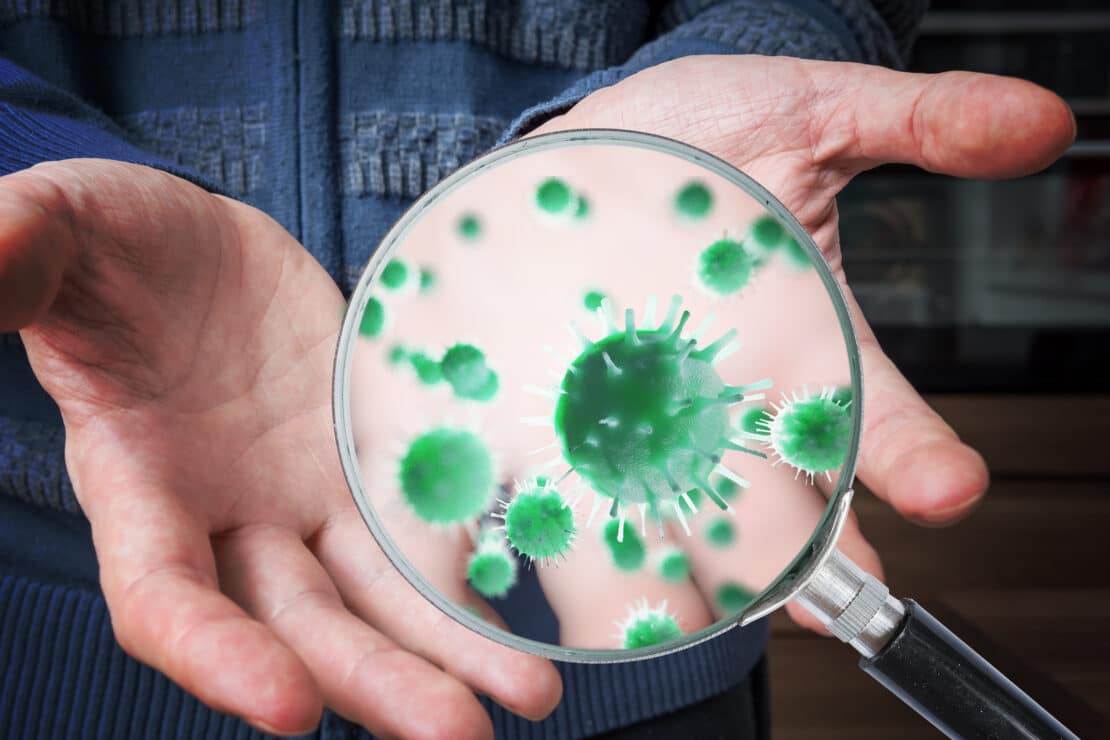Since the pandemic started, coronavirus treatments follow the same pattern.
They show promise at first. But ultimately, when it comes to using them widely in patients or testing them in trials, they have disappointing results.
Here’s just a partial list of the treatments you may have heard of:
Remdesivir is the only FDA-approved treatment. But the anti-viral drug is proving only marginally effective.[1] [2]
Hydroxychloroquine, a drug originally used against malaria, is touted by President Trump. But studies have been mixed. The National Institutes of Health now recommends against using it, citing ineffectiveness and side effects.[3]
Convalescent plasma, a blood extract from people who have recovered from COVID-19, also shows mixed results.[4]
Monoclonal antibody drugs contain lab-produced versions of the immune cells that fight coronavirus. The medications seem to help people with mild illness but not those who are severely sick. The drugs are also in short supply.
Dexamethasone is a steroid drug. It helps reduce lung inflammation in patients who are severely ill, cutting deaths by a third. But it is less likely to help—and may even harm—patients with early-stage coronavirus infections.[5]
A Natural Alternative to COVID Drugs?
The poor track record of current treatments makes a recent lab study intriguing. It was recently published in the journal Nature.
Scientists at Rensselaer Polytechnic Institute in Troy, N.Y. found that seaweed extract is up to 10 times more effective against coronavirus than remdesivir.[6]
The researchers tested five different brown seaweed extracts in cells infected by coronavirus.[7]
One of the extracts, called RPI-27, was nearly 10 times more effective than remdesivir in inhibiting the coronavirus.
Professor Robert Linhardt is a co-author of the study. He said that seaweed extract has the potential to be used to prevent COVID. “If you could treat the infection early, or even before you have the infection, you would have a way of blocking it before it enters the body,” he said.[8] [9]
Now that the lab study was successful, Professor Linhardt and his colleagues are planning to test seaweed extract in human patients suffering from COVID-19. We’ll keep you updated on the results when they’re available.
In the meantime, let’s take a look at more promising research on seaweed’s pandemic-fighting potential…
Japan has one of the world’s lowest COVID-19 mortality rates. Only 1 in 118,000 of its citizens has died from the disease. The U.S. death rate is almost 60 times higher.[10]
That’s despite the fact that Japan is rife with coronavirus risk factors. It has a densely packed population and more elderly people per capita than any other country.
Japan actually did little to reduce the spread of the disease. It never had a strict lockdown. It did relatively little testing. There was no mandatory mask requirement.[11]
But somehow, life is relatively normal in Japan, even as coronavirus continues to rage out of control in many parts of the U.S.
What’s Japan’s secret?
Could it be seaweed? Japan consumes more seaweed per person than any other country by far. A 2011 study published in the journal Thyroid Research found that the average person in Japan eats seaweed more than four times a week.[12]
The seaweed extract used in the new study comes from the same type of sea plants used in sushi, a staple of Japanese cuisine.[13] [14]
Seaweed Extract Fights Viral Infections
For now, the research is still too preliminary to know for certain whether seaweed can prevent or treat COVID-19. But previous studies have found that seaweed extract can fight viral infections:[15]
- A 2014 study published in the journal PLOS One found that brown seaweed extract prevents HIV from entering human cells. The authors concluded: “Our results reveal a strong and broad anti-retroviral activity of the common brown (seaweed).”[16]
- A 2013 study published in The Journal of Nutrition found that seaweed extract increases influenza antibodies by 250% in seniors who get a flu shot.[17]
Dr. Mary Hardy is the former medical director of the Integrative Medicine Clinic at Cedars-Sinai Hospital in Los Angeles. Based on evidence of seaweed’s disease-fighting potential from studies, she said, “I do think this is a nutrient-rich superfood.”[18]
Seaweed extract supplements are widely available at health food stores and online.
Again, it’s still too early to know for sure whether seaweed is effective against the coronavirus. But there is little downside to adding it to your supplement regimen. None of the studies reported any significant side effects.
People on thyroid or blood-thinning drugs should consult their doctor before taking seaweed extracts. High doses may lead to iodine overload, which can cause thyroid problems. Seaweed can also slow blood clotting, which could cause excessive bleeding in people on blood thinners.[19]
Editor’s Note: Whether to get the coronavirus vaccine—and what kind to get—will be the next major health decision most of us will make. And it won’t be an easy choice. You may have a half dozen or more different vaccines to choose from. They will use different technologies, some that have never before been tried in humans.
Don’t roll up your sleeve until you read our monthly journal Independent Healing. It gives you crucial details about how each vaccine works, which ones look the most promising, and the possible safety dangers. To learn what doctors want to put into your arm, go HERE.
Related Articles
Coronavirus: Stop Worrying About Contaminated Surfaces
Coronavirus Concern: Know the Drugs that Can Rob Vitamin D
The Coronavirus Risk Factor Every Man Needs to Know About
[1] https://www.eurekalert.org/pub_releases/2020-07/b-emw073020.php
[2] https://www.fda.gov/news-events/press-announcements/coronavirus-covid-19-update-fda-issues-emergency-use-authorization-potential-covid-19-treatment
[3] https://www.covid19treatmentguidelines.nih.gov/antiviral-therapy/
[4] https://www.covid19treatmentguidelines.nih.gov/immune-based-therapy/blood-derived-products/convalescent-plasma/
[5] https://www.nytimes.com/2020/06/16/world/europe/dexamethasone-coronavirus-covid.html?searchResultPosition=5
[6] https://www.nature.com/articles/s41421-020-00192-8
[7] https://www.medicalnewstoday.com/articles/covid-19-seaweed-extract-may-be-more-effective-than-remdesivir#Antiviral-decoys
[8] https://www.medicalnewstoday.com/articles/covid-19-seaweed-extract-may-be-more-effective-than-remdesivir#New-antiviral-delivery?
[9] https://www.drugtargetreview.com/news/65814/seaweed-extract-outperforms-remdesivir-as-covid-19-therapy-in-vitro/
[10] https://www.nytimes.com/interactive/2020/world/coronavirus-maps.html?action=click&module=Top%20Stories&pgtype=Homepage
[11] https://www.nytimes.com/2020/05/29/world/asia/japan-coronavirus.html?searchResultPosition=1
[12] https://www.ncbi.nlm.nih.gov/pmc/articles/PMC3204293/
[13] https://www.dentistryiq.com/dentistry/article/14180502/seaweed-extract-found-in-sushi-may-protect-against-covid19
[14] https://www.semanticscholar.org/paper/The-rise-of-seaweed-gastronomy%3A-phycogastronomy-Mouritsen-Rhatigan/2a012b0d6efffed469d066aa5c4f60ff09ca8567
[15] https://apple.news/A-QidMF08QnWzRpS05Ui9Kw
[16] https://www.ncbi.nlm.nih.gov/pmc/articles/PMC4140698/
[17] https://www.ncbi.nlm.nih.gov/pmc/articles/PMC3796347/
[18] https://www.theglobeandmail.com/life/food-and-wine/food-trends/eat-seaweed-for-the-health-benefits—but-dont-overdoit/article33281211/
[19] https://www.verywellhealth.com/the-benefits-of-brown-seaweed-89551

